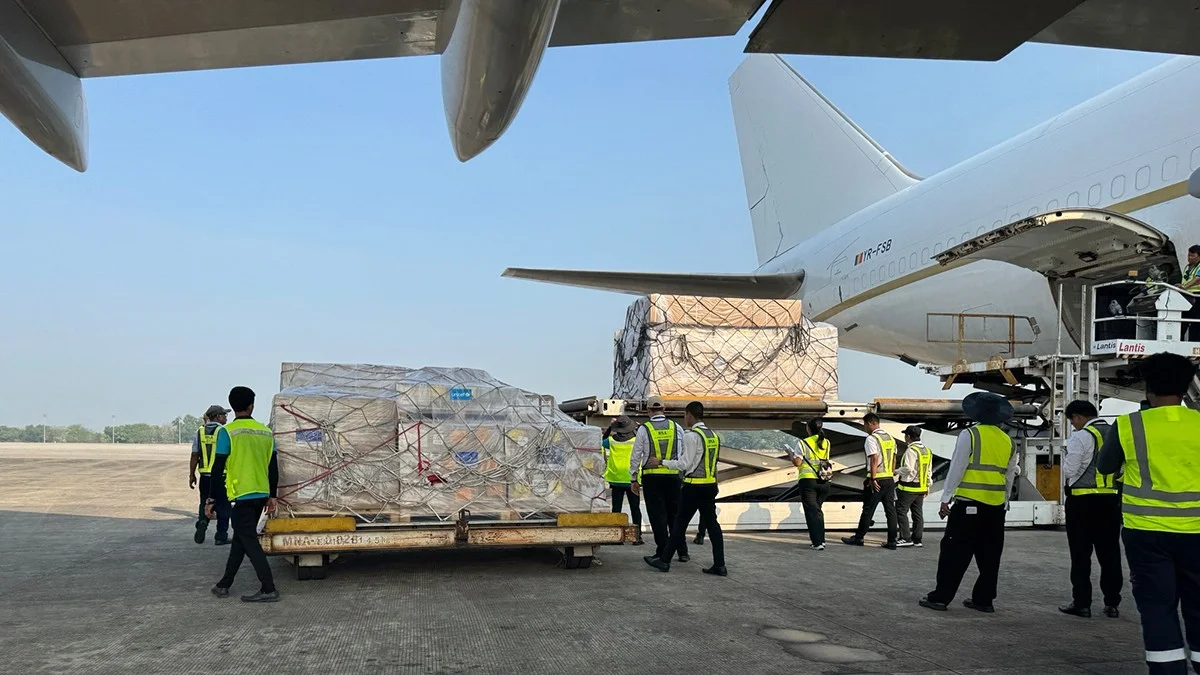First UNICEF flight lands in Yangon carrying vital supplies for children and families impacted by Myanmar earthquake.
In the first humanitarian flight by an aid organization to land in Myanmar following the devastating earthquake of 28 March, UNICEF has flown in 80 metric tonnes of emergency supplies to support children and families in urgent need across the worst-affected areas of the country.
Supported by the European Union, the shipment from UNICEF’s Global Supply Hub in Copenhagen includes emergency health kits, medical supplies, tents, and recreation kits. The supplies will be transported to the affected areas for distribution to children and families in desperate need of aid.
“The devastation in Myanmar is nothing short of catastrophic for children and families,” said June Kunugi, UNICEF Regional Director for East Asia and the Pacific. “We’re deeply grateful to the EU for making this delivery of life-saving supplies possible, and we will deliver them as fast as possible to the most affected children and families, using strong safeguards and monitoring systems.”
Soon after the earthquake, UNICEF released and delivered lifesaving supplies from its warehouses in Yangon and Mandalay to the hardest-hit areas, including basic medical supplies; essential medicines such as antibiotics, pain relief, and rehydration salts; water purification tablets; and hygiene kits with soap, sanitary pads, and disinfectants. UNICEF has also begun water trucking to bring much-needed clean drinking water to families and stem the risk of disease.
More flights are expected in the coming days as humanitarian needs continue to grow. The 7.7 magnitude earthquake that struck central Myanmar on 28 March has left millions of children at risk. UNICEF teams are on the ground, working under extremely difficult conditions to deliver life-saving aid alongside the families they serve, and operating under the humanitarian principles of humanity, neutrality, impartiality and independence.





